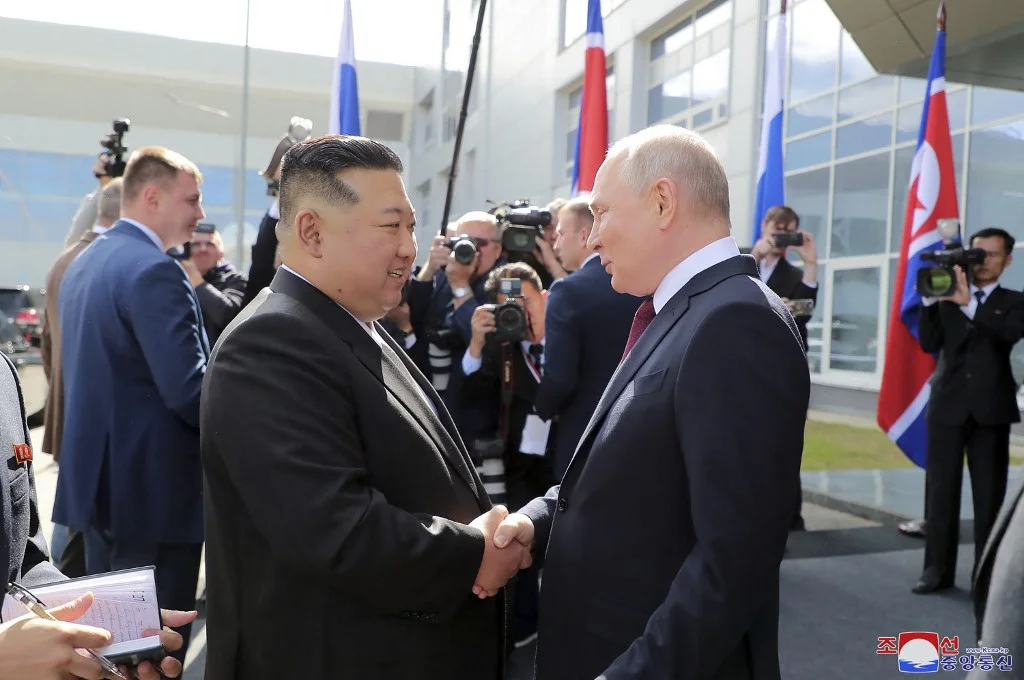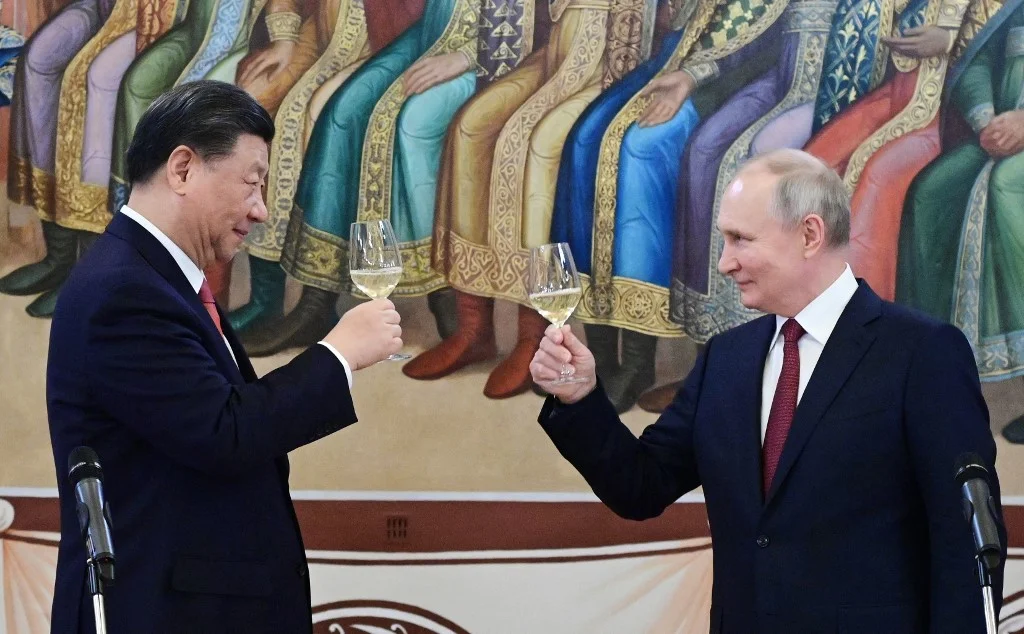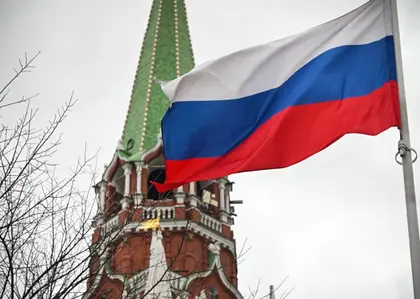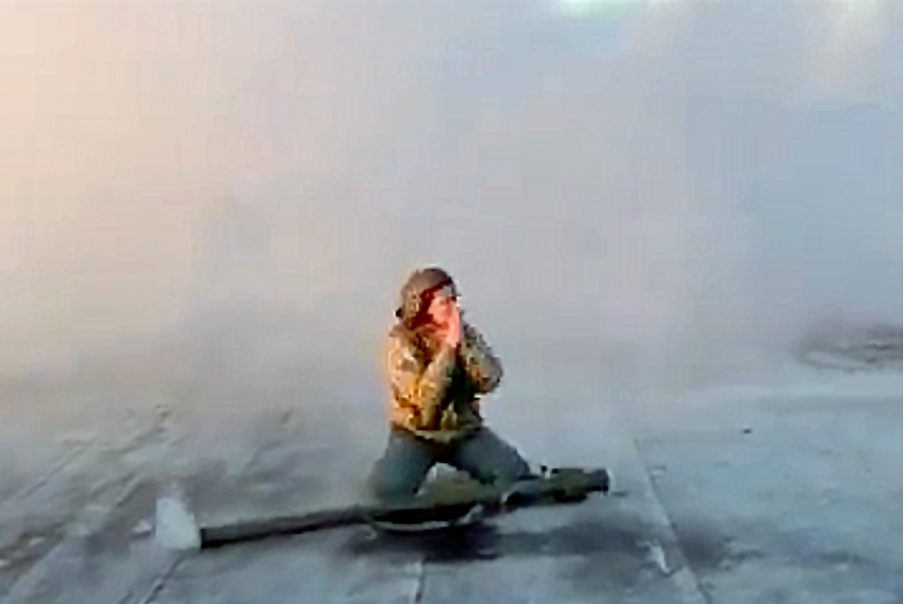The question of who Russia’s enemies are may seem obvious. Clearly Kyiv is locked in a conflict that has passed its two-year mark and is wholeheartedly backed by most NATO western powers (though some have doubts about Hungary).
But there are countries that are allies with Russia – some who offer their full-throated backing and others, such as China and India, who refrain from endorsing the full-scale war against Ukraine, though they refuse to condemn it despite it clearly breaking international law.
A good place to start looking for who is fully behind Russia’s war in Ukraine is to examine who voted against a UN resolution on Feb. 23, 2023, calling for "ending the war in Ukraine and demanded Russia’s immediate withdrawal from the country, in line with the UN Charter.”
Only Russia, Belarus, Syria, rogue state North Korea, Mali, Nicaragua and Eritrea voted against the resolution.
Belarus: Moscow's Loyal Ally
Militarily, Belarus is Russia’s closest ally, having allowed both its land and airspace to be used by the Kremlin’s forces.
Despite resisting pressure thus far from Russian President Vladimir Putin's decision to send troops into Ukraine, Belarusian President Alexander Lukashenko has had no qualms about the thousands of missiles launched from Belarus toward Ukraine’s cities.
Lukashenko has little choice in the matter given he’s only still in power because Moscow helped him quash a popular uprising after a contested election in 2020.

Russia’s War in Ukraine Has Consequences ‘Not Just for Ukraine, But for the Global Community’ – COP29
In June 2023, Belarus began hosting Russian tactical nuclear weapons on its own territories, while the Kremlin retains full control over said weapons.
Iran: Replenishing Russian Arms Stockpile
Iran has emerged as one of Russia’s few remaining allies, with Moscow increasingly isolated because of the 2022 invasion.
The Iranian government shares the Kremlin’s deep distrust of anything Western, and during a phone call at the outset of the full-scale invasion, Iranian President Ebrahim Raisi told Putin: “NATO expansion is a serious threat to the stability and security of independent countries in different regions.”
In December of 2022, the U.S. outlined what it said was an extensive and developing relationship between Iran and Russia involving equipment such as helicopters, fighter jets and kamikaze drones.
These drones have attacked Ukrainian cities on an almost weekly basis for months, and it was reported that they are being smuggled into Russia using boats and Iran’s state airline. Reports began to surface in August 2023 that Russia might be producing Iranian drones on its own territory, with assistance from the Islamic enclave.
Iran's economic and military ties with Russia have only increased and there are also fears Iran could supply Russia with ballistic missiles, which Ukraine’s current air defenses cannot shoot down.
North Korea: Newfound Ally
Perhaps unsurprisingly, longtime nemesis of the international order North Korea is a staunch supporter of Moscow and has heavily criticized the U.S. and blamed it for the Kremlin’s full-scale invasion.
Kim Yo-jong, sister of North Korean leader Kim Jong-un, said the U.S. was “crossing the red line” with its decision to send Abrams tanks to Ukraine.
She added: “I express serious concern over the U.S. escalating the war situation by providing Ukraine with military hardware for ground offensive, and strongly denounce it.
“The U.S. is the arch-criminal which poses serious threat and challenge to the strategic security of Russia and pushed the regional situation to the present grave phase.”
The U.S. has accused North Korea of supplying Russia with weapons, artillery shells in particular, funneling them through the Middle East and Africa in 2022. It is also believed to have supplied Moscow with more than a thousand containers of weapons in 2023 after North Korean leader Kim made a high-profile diplomatic visit to Russia.

Putin and Kim meeting in September. PHOTO: AFP
Syria: Moscow's Middle Eastern Stronghold
Moscow still continues to attract the most unsavory of allies, as Syria has become one of its biggest fans.
President Bashar al-Assad praised the full-scale invasion as a “correction of history” and accused Western nations of using “dirty methods to support terrorists in Syria and Nazis in Ukraine.”
Assad has been entirely dependent on Russian military support to suppress a popular uprising in his own nation which escalated into a now nearly 12-year civil war.
Russia established a permanent military presence at naval and air bases in Syria in 2017, with smaller deployments prior to that.
China: Kremlin's Biggest Global Partner
The closest thing Moscow has to global superpower support since Russia invaded Ukraine is China, though it is far from definitive or unconditional. China has never condemned the Russian invasion of Ukraine, nor has it endorsed it, though Beijing and Moscow remain on friendly diplomatic terms.
China has walked a delicate and slightly ambiguous line that has at times echoed the Kremlin’s line, referring to the invasion as a “special military operation,” for instance and abstaining from United Nations votes condemning it.
In 2022, China’s Foreign Minister Wang Yi said his country would help Russia “overcome difficulties, eliminate disturbances, realize the strategic goals of development, and further establish Russia on the international stage.”
Yet this contrasted sharply with comments from Foreign Ministry spokesperson Mao Ning, who called for de-escalation, adding, “all countries deserve respect for their sovereignty and territorial integrity,” and that “support should be given to all efforts that are conducive to peacefully resolving the crisis.”
Russia has repeatedly requested arms from China, but as far as is known, Beijing has balked. China has, however, provided non-lethal equipment such as flak jackets and helmets, according to U.S. intelligence sources. In October 2023, Russian Finance Minister Anton Siluanov admitted "basically all" civilian drones came from China.
One way in which China is undoubtedly supporting Moscow is by increasing imports of Russian oil and gas. The two countries also share close economic ties, reaffirmed by Putin's attendance at China's Belt and Road Forum in October 2023, with the Russian president calling his counterpart Xi a "dear friend."
But China remains wary of doing more in case it incurs the wrath of debilitating Western sanctions.

Putin and China's President Xi Jinping make a toast during a reception following their talks at the Kremlin in Moscow on March 21, 2023. PHOTO: AFP.
India: Historical Ties to Russia
India is another country that has walked an ambiguous line and the closest it has come to criticizing Russia was during an awkward televised meeting in September of 2022, when Indian Prime Minister Narendra Modi told Putin, “I know that today’s era is not an era of war, and I have spoken to you on the phone about this.”
And yet, just like China, India has increased imports of Russian gas and oil since February of 2022, indirectly helping finance the Kremlin’s military.
India has also abstained from voting on nearly every resolution condemning Russian aggression at the UN.
The general public in India appears to have strong support for Russia, which may be a result of both India’s current reliance on Russian military hardware and recollections of the Soviet Union assisting India in the 1971 Bangladesh Liberation War.
Mali: Russia's Expanding Ambition Among African Nations
Mali has recently swung sharply into the Kremlin's orbit after the French ended and withdrew Operation Barkhane, its military mission to save the capital from being sacked by jihadists.
Currently ruled by military putschists who have denounced France, the authorities have enlisted the help of Russian Wagner mercenaries to solidify their power.
Commenting on the development, US Secretary of State Antony Blinken recently said: "Everywhere Wagner goes, bad things tend to follow.
"Where we have seen it act, it hasn't improved security. On the contrary, we've actually seen things get worse, and the exploitation of resources, the corruption, the violence that it brings are a plague on people in the countries that have chosen to work with it."
While most African nations such as South Africa led by President Cyril Ramaphosa, refrained overtly from picking a side in Russia's war in Ukraine, Moscow's propaganda proved to be effective in swaying the local population, a phenomenon which can also be seen in Latin America.
Eritrea: a Symbolic Alliance
Russian Foreign Minister Sergei Lavrov visited Eritrea in January of 2023, part of an African tour designed to firm up support in countries that could be persuaded to stand with the Kremlin over the West. The continent has become somewhat of a diplomatic battleground since the Ukraine war began.
Eritrea is one of the most closed off countries in the world and has been ruled by the iron fist of President Isaias Afwerki since the country gained independence from Ethiopia since 1993. The country's army has been accused of numerous atrocities against civilians during a brutal two-year war in Ethiopia's northernmost region of Tigray.
The Collective Security Treaty Organization
The Moscow-led CSTO is a military alliance in Central Asia made up of six post-Soviet states: Armenia, Kazakhstan, Russia, Belarus, Kyrgyzstan, and Tajikistan, but not all of them have played ball over the last year.
Analysts say Russia – distracted by its protracted war in Ukraine – is losing influence in the Southern Caucasus after decades of playing the role of power broker. For instance, the fall of Armenian-controlled Nagorno-Karabakh has prompted its prime minister, Nikol Pashinyan, to call Moscow's security guarantee "ineffective."
Despite being a member of CSTO, Kazakhstan reportedly denied a Russian request to take part in the full-scale invasion of Ukraine.
And while the country’s government has avoided directly criticizing Russia, it has also not officially recognized the Russian-backed Luhansk and Donetsk Republics in eastern Ukraine.
Armenia similarly refused to host CSTO military drills. And Kyrgyzstan, Tajikistan have been wary of supporting Russia “in ways Moscow may find irritating,” according to the Carnegie Endowment for International Peace.
Myanmar
Elsewhere in the world, Myanmar’s military junta, which overthrew a democratically elected government two years ago, supports Russia, which it has said was “acting to protect its sovereignty,” and praised Russia’s role in “balancing global power.”
Russia is a major ARMS supplier to Myanmar.
Article updated 10.23.2023
You can also highlight the text and press Ctrl + Enter






